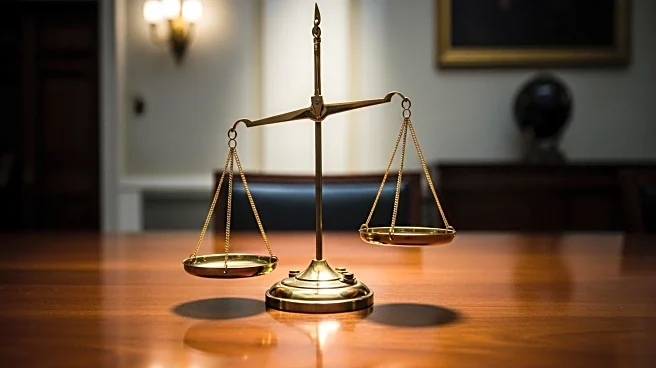What's Happening?
Congress is once again embroiled in a shutdown drama as lawmakers struggle to pass a funding bill to keep the government operational. The threat of a government shutdown has become a recurring issue, with shutdowns costing billions and disrupting federal productivity. Senator Ron Johnson proposed the Eliminate Shutdowns Act, which aims to maintain government funding at existing levels in two-week increments during funding lapses. However, the proposal faced opposition, particularly from Democrats, who view it as a mechanism to control spending. Bipartisan efforts, such as the proposal by Senators Maggie Hassan and James Lankford, have also been made to address shutdowns, but have yet to gain traction.
Why It's Important?
Government shutdowns have significant implications for federal workers and public services, affecting everything from transportation projects to healthcare subsidies. The shutdown drama highlights the dysfunction in Washington, where partisan bickering often takes precedence over consensus-building. Shutdowns serve as leverage for minority parties, allowing them to influence spending bills that require bipartisan support. The ongoing stalemate over funding bills underscores the challenges in achieving legislative cooperation, impacting public policy and the delivery of essential services to Americans.
What's Next?
As the shutdown drama unfolds, both parties are refining their talking points and strategizing to gain political leverage. Republicans accuse Democrats of prioritizing health benefits for undocumented immigrants, while Democrats push for enhanced subsidies for Obamacare enrollees. The shutdown could lead to further delays in federal funding for infrastructure projects, particularly in New York, where transportation initiatives are already stalled. The political maneuvering around the shutdown may continue to impact legislative priorities and public perception of government effectiveness.
Beyond the Headlines
The recurring shutdown drama reflects deeper issues within the U.S. political system, where separation of powers often leads to gridlock rather than productive debate. The reliance on shutdowns as a political tool raises questions about the effectiveness of current governance structures and the need for reform. The impact of shutdowns extends beyond immediate financial costs, affecting public trust in government and the ability to address long-term policy challenges. As lawmakers navigate the shutdown crisis, the broader implications for democratic governance and public accountability remain a critical concern.









